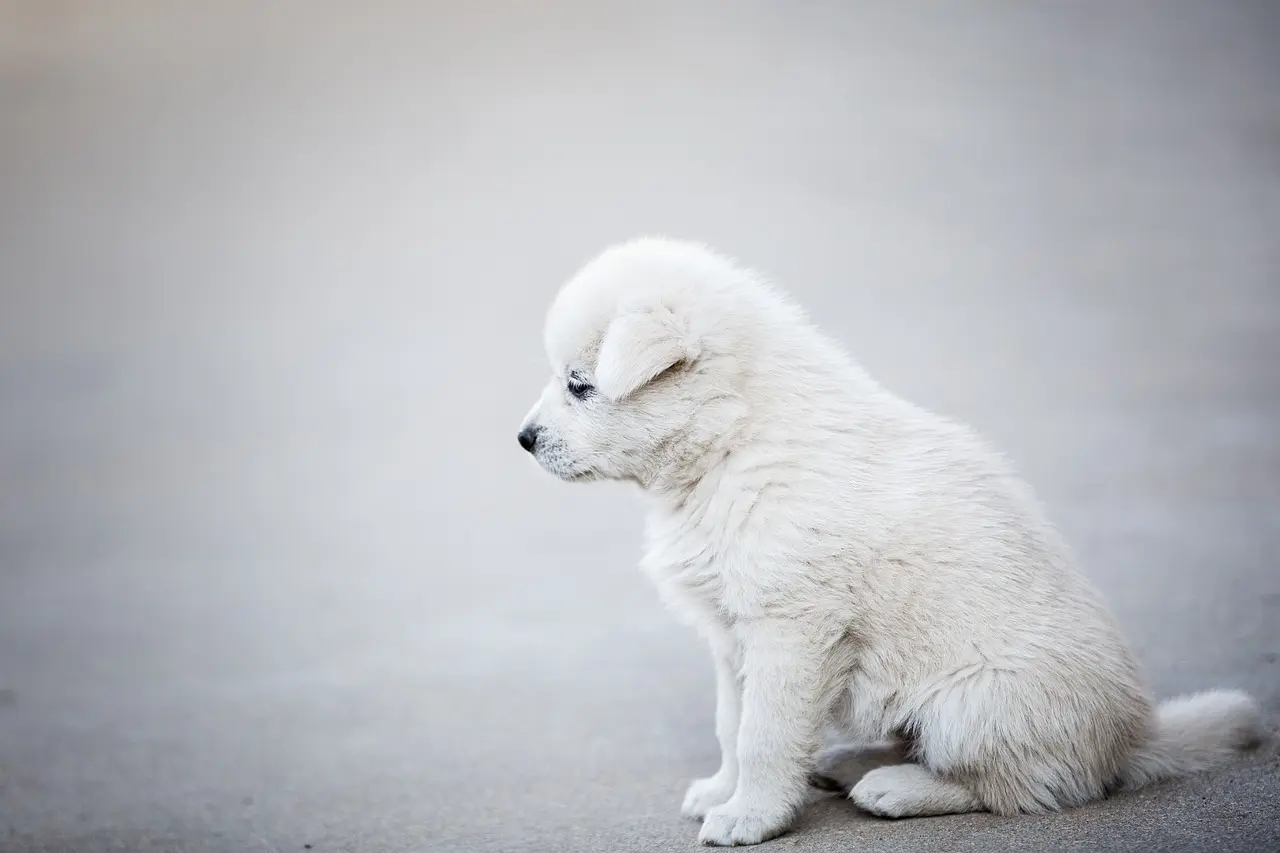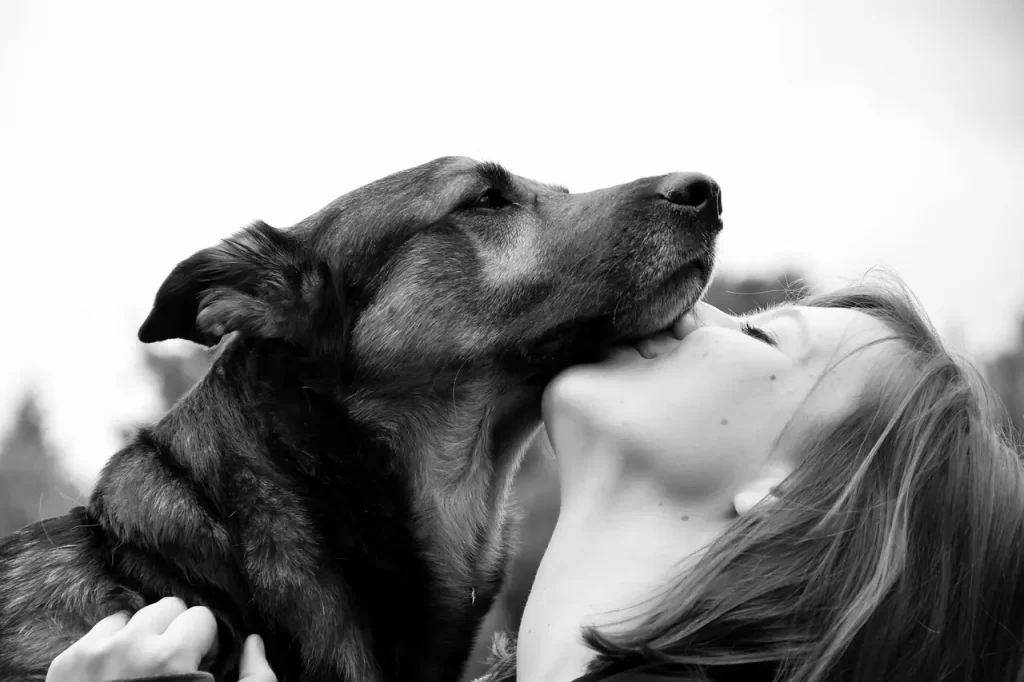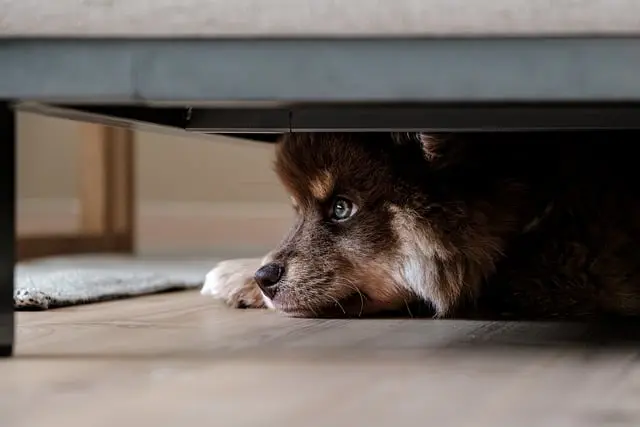
Have you ever wondered why your dog suddenly turns their head away or acts out of character? You might be unknowingly doing something that they hate. Research shows that dogs have distinct likes and dislikes, many of which are surprising to even the most experienced dog owners. In this article, we’ll explore “20 things that dogs hate” and avoid them to ensure your dog’s well-being.
01
of 20
Eating the Same Food Every Day
Imagine eating oatmeal for every meal a week—it would get boring quickly, right? Dogs feel the same way about eating the same kibble every day for years. Variety is the spice of life, even for dogs. Adding different types of meat and vegetables to their diet every few days can provide new flavours and make mealtime more exciting. Fresh food introduces variety and is nutritious, enhancing your dog’s overall health. If you’re wondering what dogs hate about their food routine, it’s the lack of variety.
02
of 20
Frequent Baths
Dogs have a natural scent that is essential for communication with other dogs. Frequent bathing can strip their skin of natural oils, leading to discomfort and potential skin issues. Frequent baths are unnecessary unless your dog is dirty and can be overwhelming due to their sensitive noses. Instead, bathe your dog only when necessary using dog-specific shampoos that are gentle on their skin. In between baths, wipe them down with a damp cloth to keep them fresh. Understanding what dogs hate about baths can help you keep them comfortable.
03
of 20
Lack of Understanding and Punishment
Dogs don’t do things out of malice. If they misbehave, there’s usually a reason behind it. Punishing a dog without understanding their behaviour can be very upsetting for them. They don’t understand complex human emotions and languages, so they might not even know what they did wrong. Instead of punishment, use positive reinforcement techniques to encourage good behaviour. This helps in training and strengthens your bond with your pet. Recognizing what do dogs not like in their training can make a big difference.
Read More: 11 Best tips for first time dog Owners
04
of 20
Forced Socialization
Just like you wouldn’t want to greet every stranger on the street, dogs don’t always want to interact with every other dog. Forcing them to socialize can be annoying and even lead to conflicts. Respect your dog’s social preferences and let them choose their friends. This will help them feel more comfortable and secure. Knowing what dogs hate about social interactions can prevent stress.
05
of 20
Overexercise
While exercise is essential, some breeds, especially those with short noses like Bulldogs and Pugs, aren’t suited for intense exercise. Long periods of running can cause breathing difficulties. Recognize your dog’s limits and avoid overexercising them. Instead, opt for shorter, more frequent walks and play sessions that match their energy levels and physical capabilities. Understanding what dogs dislike about exercise is crucial to keep them healthy.
06
of 20
Overheating
Dogs can’t sweat like humans; they cool down through panting and paw pads. On hot days, avoid taking them out during peak heat and ensure they have plenty of water to stay hydrated. Providing a cool, shaded area and limiting strenuous activities during hot weather can help keep your dog comfortable. Recognizing what dogs hate about hot weather will help you care for them better.
07
of 20
Teasing
Children might often chase, tease, or pull a dog’s tail, thinking it’s fun. This can be very annoying for the dog and might lead to aggression to attack the child. It should be necessary to let the child understand first that dogs are not toys and need to respect their required distance and space. Teach children to respect the dog’s space and treat them kindly. Positive interactions will help foster a loving relationship between your dog and your children. Understanding what dogs dislike about being teased can improve their behaviour.
08
of 20
Teasing with Treats
Treats are meant to reward good behaviour. Waving treats in front of a dog without giving them can confuse and frustrate them, wondering if he did something wrong to not get snacks, could possibly make the dog not as easy to train and disobedient. Use treats consistently and fairly to reinforce positive behaviour and avoid unnecessary teasing. Knowing what dogs hate about treat teasing can make training smoother.
09
of 20
Treating Them Like Child
Although we all say that dogs are like our own children, in fact, they are still dogs. Don’t expect dogs to be as obedient as children or to behave like human children who will abide by the rules. Dogs might chew on things or act out of anxiety. Understanding their needs and treating them as dogs with patience is essential. This involves recognizing their natural behaviours and responding appropriately. Recognizing what do dogs dislike about being treated like humans is crucial.
10
of 20
Ignoring Them
Dogs are sensitive and can feel neglected if a new family member, like a baby, takes all the attention. They can sense the decrease in attention and might become anxious. Some families even completely isolate dogs from children because they are afraid that dogs are dirty. In fact, under the care of parents, letting dogs and children get along and giving them correct guidance, they will find their own mode of getting along. It is actually a great experience for children and dogs to grow up together. Understanding what dogs hate about being ignored helps them maintain their happiness and ensure your dog doesn’t feel left out.
11
of 20
Loud Environments
Dogs not only have excellent sense of smell, their hearing is also very sensitive. Humans cannot hear sounds above 20000 HERTZ (Hz), but dogs can hear sounds from 47000 to 65000 Hz. Dogs have sensitive hearing, and loud noises like vacuum cleaners, thunderstorms, or fireworks can be extremely distressing. When a loud noise occurs, dogs may react with anxiety and nervousness, they may keep barking, want to hide or run away. If outside, some dogs may even break free and run away because they are too scared. Proper socialization and safe, quiet space can help alleviate their anxiety during noisy events. Recognizing what dogs dislike about loud environments can reduce their stress.
12
of 20
Disturbing Their Meals
Dogs need peace during their meals, just as you wouldn’t want to be disturbed while eating. Disturbing them or taking their food away can cause food aggression, even if the owner takes away their food, they are very likely to be bitten. Ensure your dog has a quiet, undisturbed place to eat to prevent stress and aggressive behaviour. Knowing what do dogs not like about mealtime disturbances can prevent behavioral issues.
13
of 20
Rushed Walks
Walking is not just about exercise for dogs; it’s about exploring and sniffing their environment. Rushing their walks deprives them of this enjoyment. Ensure each walk is long enough for them to explore and satisfy their curiosity. This not only keeps them physically fit but also mentally stimulated. Recognizing what do dogs like about walks can make them more enjoyable. Walking the dog twice a day, each time for more than 30 minutes, is the basic walking requirement that must be met for the dog.
14
of 20
Improperly Fitting Collars
A collar that’s too tight or too loose can be uncomfortable for a dog. A loose collar can lead to a lack of control, while a tight one can cause anxiety and physical harm. Ensure the collar fits just right by allowing you to comfortably slide two fingers under it. Understanding what dogs hate about their collars can improve their comfort. You should ensure that the tightness of the leash is moderate, and a length of 1 to 1.5 meters is the most comfortable.
15
of 20
Unnecessary Dressing
While cute costumes can be fun for us, most dogs don’t need clothing unless it’s for warmth. Unnecessary outfits can be restrictive and uncomfortable for them. If you must dress your dog, ensure the clothing is comfortable and doesn’t restrict their movement or cause overheating. Knowing what do dogs not like about dressing up can keep them happier.
16
of 20
Monotonous Life
Dogs can get bored with a monotonous routine. Adding fun activities like sniffing games can provide mental stimulation and strengthen your bond. Rotate toys and introduce new activities to keep their environment engaging and exciting. Recognizing what do dogs like about variety can prevent boredom.
17
of 20
Mixed Signals
If different family members use different commands, it can confuse the dog. They will feel confused and don’t know what to do, so the dog may become disobedient and difficult to train. Consistent commands and signals from everyone will make training more accessible and more effective. Ensure the whole family is on the same page with the training techniques and commands. Understanding what dogs hate about mixed signals can improve training.
18
of 20
Arguing in Front of Them
Dogs pick up on our emotions. Arguing in front of them can make them anxious. They might try to intervene or become distressed, affecting their overall well-being. Maintaining a calm environment is crucial for their emotional health. Knowing what do dogs dislike about emotional turmoil can keep them calm.
19
of 20
Leaving Them Alone for Too Long
A dog spends more than half of its life waiting for its owner. Dogs are social animals and need companionship. Leaving them alone for extended periods can lead to separation anxiety and destructive behaviour. Ensure they get enough interaction and attention. Consider pet sitters or doggy daycare if you’re away for long periods. Recognizing what dogs hate about being left alone can prevent anxiety.
20
of 20
Abandoning Them
According to ASPCA, approximately 6.3 million companion animals enter U.S. animal shelters nationwide every year. Of those, 3.1 million are dogs. From the moment a dog is born, everything is arranged by fate, he never has the right to choose who raises him, and what kind of life he leads is all arranged by humans. Dogs don’t choose their owners or their life circumstances. Abandoning them is the worst thing that can happen to them. Before getting a dog, consider the commitment and be ready to provide lifelong care. Never abandon them and always prioritize their well-being. Understanding what dogs hate about abandonment is crucial for responsible pet ownership.
Conclusion

Understanding your dog’s dislikes is a significant step towards fostering a loving and stress-free relationship with your furry friend. By being aware of the common triggers that cause discomfort or anxiety in dogs, you can make small but impactful changes in your daily interactions and environment that strengthen your bond and enjoy a fulfilling relationship with your furry friend. For more tips please check out our related articles for more insights into caring for your dog.



